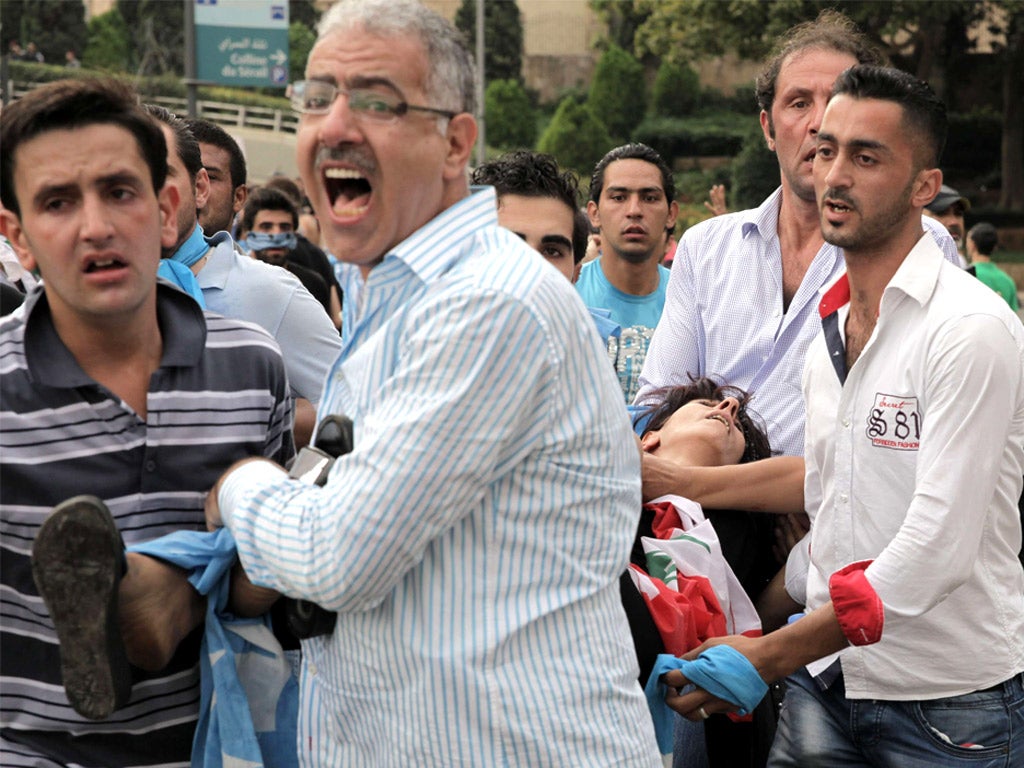
Lebanon's embattled Prime Minister Najib Mikati clung to power yesterday as a decision not to refer the investigation into the assassination of a security chief to an international tribunal incensed opposition MPs, deepening the political crisis.
Opposition politicians questioned the ability of its institutions to remain impartial as the government – dominated by Syria's ally Hezbollah – said it would refer the investigation into the car bomb that killed Wissam al-Hassan to the country's judicial council rather than the Netherlands-based tribunal examining the killing of former Prime Minister Rafiq Hariri in 2005. During that investigation four Hezbollah members were indicted by the UN court.
"We have serious worries about the investigation," said opposition MP Michel Pharaon, who wants to see the government dissolved and an interim cabinet of technocrats installed. "There are pressures on the judiciary and we demanded that the government refer this to the special tribunal and that hasn't happened."
The opposition March 14 bloc has been calling for the resignation of Mr Mikati and his government since the bomb ripped through an affluent neighbourhood of Beirut on Friday, a killing blamed on Damascus and its proxies. The bloc said it would boycott all political activities, including parliament, until the cabinet resigns.
However, despite mounting pressure on the Prime Minister, many fear his resignation could further destabilise the country.
The European Union's foreign policy chief, Catherine Ashton, flew to Beirut to meet the premier and expressed concerns about a possible power vacuum if he steps aside.
Eleven people have been killed in sectarian clashes since the blast bringing back memories of the country's 15-year civil war. The violence has been largely contained to familiar trouble spots, particularly the northern city of Tripoli, where a tense truce was in place. The streets of Beirut were largely quiet.
Subscribe to Independent Premium to bookmark this article
Want to bookmark your favourite articles and stories to read or reference later? Start your Independent Premium subscription today.

Join our commenting forum
Join thought-provoking conversations, follow other Independent readers and see their replies